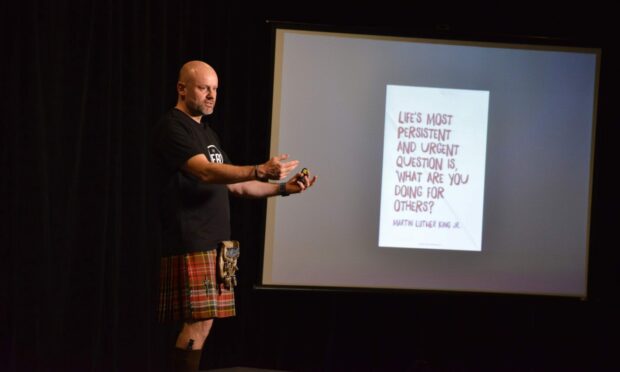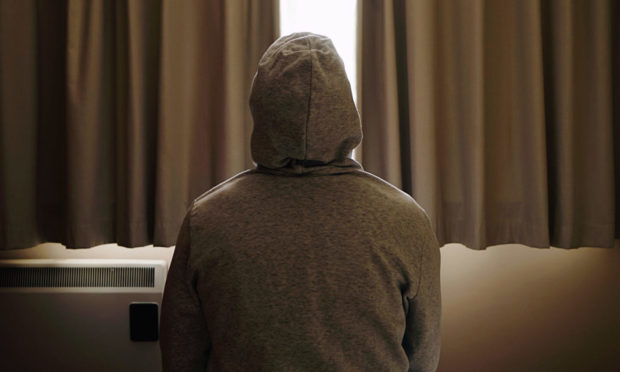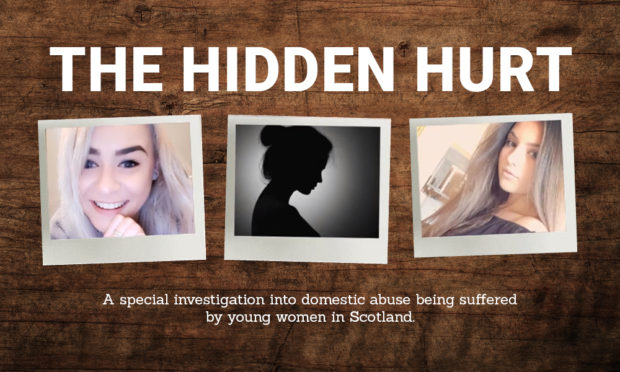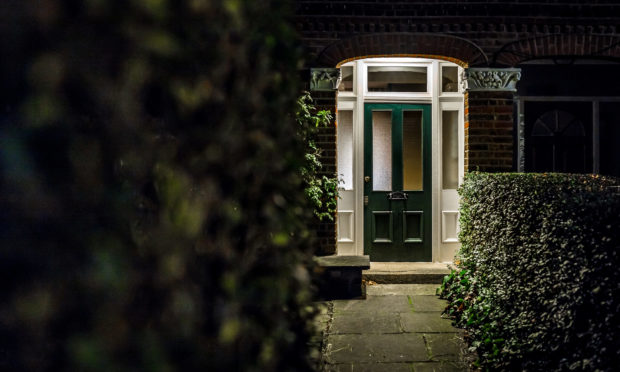A man who murdered his girlfriend in a crime that shocked Angus has lost an appeal against his sentence.
Keith Rizzo, 24, was given a life sentence with a minimum of 22 years in March this year at the High Court in Glasgow.
A jury had found him guilty of killing Aberdeen woman Neomi Smith, 23, by stabbing and choking the care worker at her flat in Swan Street, Brechin, on June 9 last year.
But his lawyer appealed the sentence claiming it was “excessive” that Rizzo must wait at least 22 years to apply for parole.
A physical court hearing could not take place due to Covid-19 restrictions, so a remote hearing took place instead on Friday.
During the hearing, Donald Findlay QC, representing Rizzo, argued the 22-year period could hinder Rizzo’s efforts to become a reformed character.
But the three judges presiding – Lord Carloway, Lord Glennie and Lord Turnbull – rejected the appeal after a 10-minute private conference.
Addressing the court, Lord Carloway said: “The court considers you said absolutely everything that could be said on Mr Rizzo’s behalf in this tragic matter.
“However, having regard especially to the domestic nature of this offence, the court does not consider that the punishment part was excessive.
“This appeal is refused.”
After the hearing, Neomi’s father John Smith, who watched the remote hearing, told the Evening Express: “It doesn’t matter what the outcome was, it is not going to bring Neomi back.
“I still don’t think 22 years is enough for what he has done, but he might never ever get out of prison.
“He has got to do his 22 years and is then eligible for parole, which he might not get.”
Mr Smith said he could not understand why Rizzo, who denied murdering Neomi during the original court case, had not also appealed against his conviction rather than just his sentence if it is still his position that he did not murder Neomi.
Mr Smith added: “And if he has accepted murdering Neomi, his sentence should be a lot more because he’s put everybody through hell this last year with the trial.
“I think he’s got off lightly.”
Earlier this year, Mr Smith spoke to us exclusively as part of our Hidden Hurt investigation into domestic abuse committed by young men in the north-east and the support services available to victims.
He had said he wanted to help domestic abuse victims after the appeal hearing.
Mr Smith told us today: “I still would like to help people but I don’t know exactly what I want to do yet.”
After the hearing, Neomi’s mother, Margaret Davidson, who also watched the remote hearing, told the Evening Express: “I’m just glad he has lost the appeal.
“Rizzo robbed my daughter of her life at 23 years old. He doesn’t deserve to be out in society.
“He doesn’t deserve to breathe the same air as me and my family.
“The hearing was all about rehabilitation. How can you rehabilitate someone who is a known domestic-violence offender, not to just to my daughter?
“This will give me closure. There have been 15 months that we’ve had this hanging over our heads.”
She added that she would be seeking to help domestic abuse victims in future.
Mr Findlay told the court: “Mr Rizzo is a comparatively young man.
“He is now 24 years of age and the punishment part (of 22 years) imposed upon him is not much different from the amount of time he has spent on this Earth thus far.
“It is clear he will be into his mid-40s before he can seek to apply for parole and it is not inconceivable that he may be between his mid-40s and 50s by the time any parole is granted.
“I find it difficult to grasp how rehabilitation can work when, regardless of the rehabilitation, it is 22 years until the man can contemplate the prospect of returning to society.
“Where you have a young man of 24, it cannot assist with rehabilitation knowing that, no matter what progress he makes over five, 10, 15, 20 years, he still faces a considerable period of time in custody before he can apply for parole.
“I do of course appreciate that the public expect to see punishment.
“But, specifically when you have someone who is younger, where one would hope they can be rehabilitated for their own benefit but also for the good of society, there must be a greater balance, between the power of the parole board and the punishment part imposed.
“By that I mean – to give the man some hope that he may begin to demonstrate his mettle and to show he is a better person than he was.
“The individual must have that drive – and part of that drive is an incentive that there is a light of the end of the tunnel.”
During the original court case, it emerged Rizzo had a previous conviction for domestic abuse against a former partner.
The court heard that Rizzo had assaulted Neomi on several occasions and that, on the night Rizzo killed her, Neomi had angered him just by dancing at Hudsons Bar in Brechin as men were in the vicinity of the dance floor.
Neomi returned to her nearby flat alone and locked the door, but Rizzo went back later, forced his way and stabbed Neomi 32 times before alerting a neighbour and claiming to police unnamed masked men had killed her.
Rizzo had also accused Neomi of associating with sinister men – but was never able to prove his version of events
The crime shocked the region and many paid their respects by leaving floral tributes outside the flat, by attending her funeral at Aberdeen Crematorium in July 2019, or by donating money in Neomi’s memory to Horseback UK, as she was a horse riding enthusiast.
Addressing the court, Mr Findlay said: “Can I also make it plain that I entirely recognise from the circumstances of the case that a significant punishment part was necessarily merited? I take no issue with that.”
Lord Carloway told the court that the judges would “in early course” provide written reasons for the decision to refuse the appeal.















